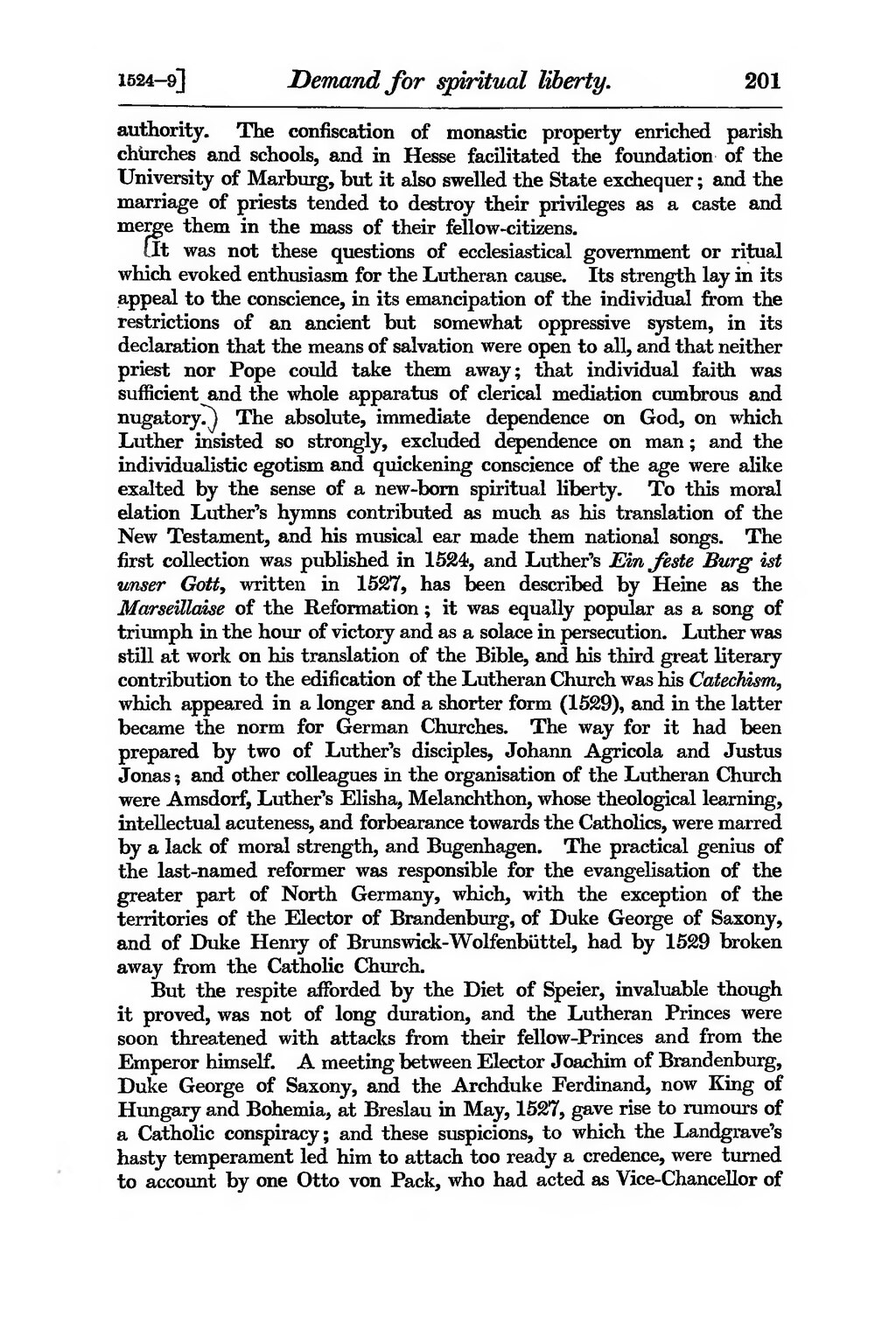authority. The confiscation of monastic property enriched parish churches and schools, and in Hesse facilitated the foundation of the University of Marburg, but it also swelled the State exchequer; and the marriage of priests tended to destroy their privileges as a caste and merge them in the mass of their fellow-citizens.
It was not these questions of ecclesiastical government or ritual which evoked enthusiasm for the Lutheran cause. Its strength lay in its appeal to the conscience, in its emancipation of the individual from the restrictions of an ancient but somewhat oppressive system, in its declaration that the means of salvation were open to all, and that neither priest nor Pope could take them away; that individual faith was sufficient and the whole apparatus of clerical mediation cumbrous and nugatory. The absolute, immediate dependence on God, on which Luther insisted so strongly, excluded dependence on man; and the individualistic egotism and quickening conscience of the age were alike exalted by the sense of a new-born spiritual liberty. To this moral elation Luther's hymns contributed as much as his translation of the New Testament, and his musical ear made them national songs. The first collection was published in 1524, and Luther's Ein feste Burg ist unser Gott, written in 1527, has been described by Heine as the Marseillaise of the Reformation; it was equally popular as a song of triumph in the hour of victory and as a solace in persecution. Luther was still at work on his translation of the Bible, and his third great literary contribution to the edification of the Lutheran Church was his Catechism, which appeared in a longer and a shorter form (1529), and in the latter became the norm for German Churches. The way for it had been prepared by two of Luther's disciples, Johann Agricola and Justus Jonas; and other colleagues in the organisation of the Lutheran Church were Amsdorf, Luther's Elisha, Melanchthon, whose theological learning, intellectual acuteness, and forbearance towards the Catholics, were marred by a lack of moral strength, and Bugenhagen. The practical genius of the last-named reformer was responsible for the evangelisation of the greater part of North Germany, which, with the exception of the territories of the Elector of Brandenburg, of Duke George of Saxony, and of Duke Henry of Brunswick-Wolfenbiittel, had by 1529 broken away from the Catholic Church.
But the respite afforded by the Diet of Speier, invaluable though it proved, was not of long duration, and the Lutheran Princes were soon threatened with attacks from their fellow-Princes and from the Emperor himself. A meeting between Elector Joachim of Brandenburg, Duke George of Saxony, and the Archduke Ferdinand, now King of Hungary and Bohemia, at Breslau in May, 1527, gave rise to rumours of a Catholic conspiracy; and these suspicions, to which the Landgrave's hasty temperament led him to attach too ready a credence, were turned to account by one Otto von Pack, who had acted as Vice-Chancellor of
